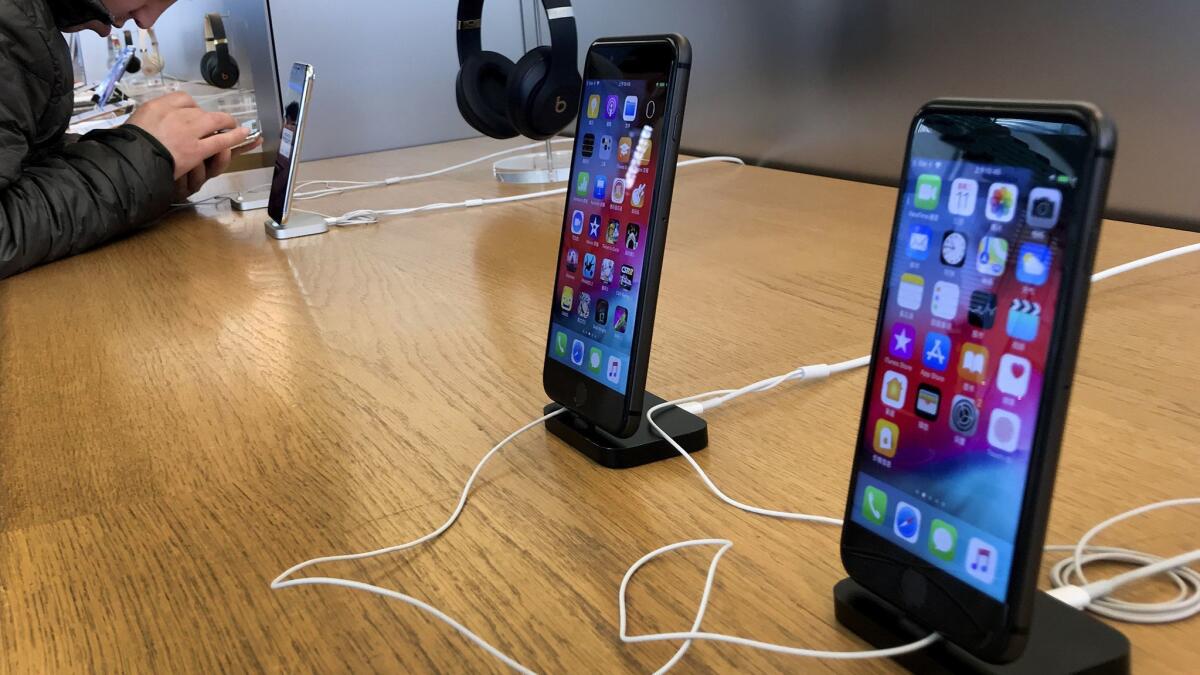Apple-Qualcomm chip deals may not have collapsed over patent fees, leaked emails suggest

When Apple Inc. executive Jeff Williams told a courtroom that Qualcomm Inc. cut off chip supply for iPhones, it was compelling testimony in the Federal Trade Commission’s antitrust case against the semiconductor company.
The FTC argues that Qualcomm won’t sell chips if customers don’t also pay hefty licensing fees. But a 2017 email exchange between Williams and Qualcomm Chief Executive Steve Mollenkopf shows the relationship may have broken down for other reasons.
Billions of dollars in chip supply deals involving Apple and Qualcomm may have actually collapsed over a squabble about software access, rather than the patent fees that sparked a bitter legal battle between the two technology giants, according to the emails seen by Bloomberg.
In a bid to keep San Diego-based Qualcomm supplying modems for a portion of Apple’s 2018 iPhones, Williams set aside the licensing dispute to focus on the potential benefits of the two companies continuing to work together. (The modems are crucial chips that help phones convert radio signals into data and voice.)
Williams said Apple would not leak key Qualcomm computer code needed to customize modem chips — something the chipmaker had accused the iPhone maker of doing. The chief operating officer offered to “firewall” engineers using the software.
“In my wildest imagination of some evil intention of Apple, I have trouble coming up with a real scenario where anything of significant value could be leaked based on this code,” Williams wrote in September 2017.
“I just hope the licensing dispute doesn’t cloud good judgment in the team on a massive business opportunity,” he added, noting that Apple planned to order about $2 billion worth of chips from Qualcomm for 2018. “I was hoping to keep some decent quantity of business flowing with hopes that the licensing stuff will get solved.”
Mollenkopf replied that his main concern was about protecting Qualcomm’s proprietary information and that he hadn’t seen much action by Apple in response to earlier complaints from Qualcomm on that issue. “This is independent of our license dispute,” the CEO wrote.
Nonetheless, Mollenkopf offered to provide the software access Apple needed. In return, he asked for a commitment from Apple to use Qualcomm modem chips in at least 50% of iPhones over two years, according to the emails.
The exchange suggests that Qualcomm and Apple were arguing over software, rather than the licenses at the center of their bruising legal battle. Still, the emails offer only a small window into the negotiations. It’s common for dueling litigants to carefully select slices of evidence that support their arguments. However, this email exchange hasn’t been submitted in the FTC trial so far. And Williams said in court this week that he spoke with Mollenkopf about the chip supply issue over the phone. The details of that conversation aren’t known.
On Friday in court, the FTC confronted Qualcomm Chief Technology Officer James Thompson with a 2014 email exchange between him and Mollenkopf in which Thompson suggests “striking back at Apple while we’re strong” amid licensing negotiations. Thompson viewed Apple as vulnerable to losing big business in North America and China at the time if it continued pushing back against Qualcomm’s no-license-no-chips policy, according to the email cited by the FTC.
An Apple spokesman didn’t respond to a request for comment. Qualcomm declined to comment.
During testimony in the FTC case this week, Williams said Qualcomm refused to supply Apple with modems after Apple sued the semiconductor company. He said he contacted Mollenkopf by email and phone to try to persuade Qualcomm to supply chips for 2018 iPhone models.
“We tried to get them to sell us chips, and they would not,” he told Judge Lucy Koh, who is presiding over the bench trial in San Jose.
In the end, Intel Corp. became the sole provider of iPhone modems. Qualcomm then sued Apple, accusing it of using its software to help improve the performance of Intel chips.
King and Gurman write for Bloomberg.






